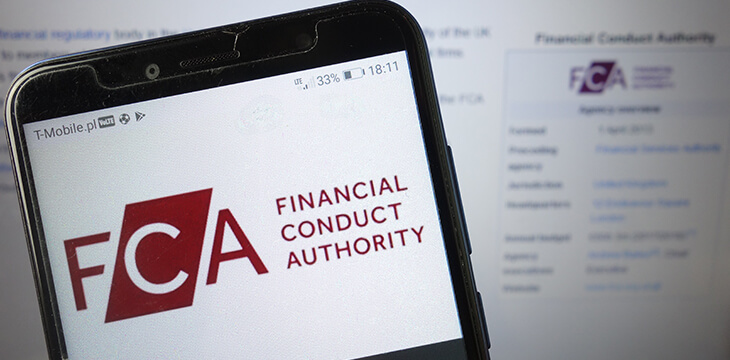The U.K.’s financial services regulator has said more powers are needed to regulate digital currency promotions and advertisements, over concerns that there is still serious scope for investors to be misled about the options available to them.
The Financial Conduct Authority (FCA) raised the concerns via a speech delivered by chairman Charles Randell, who said the body should be given more teeth to tackle rogue and misleading promotions in the sector.
Randell said that with more powers, the regulator would be able to clamp down on advertisements that had overstepped the mark, allowing it to better protect investors.
In particular, he said it was “absolutely imperative” that promotions accurately reflect the high levels of risk involved in digital currency investments, while also not giving the impression that tokens were operating in a regulated environment.
“And, since these promotions are nearly all online and often made by unidentifiable promoters in other jurisdictions, it’s imperative that any regulations in this area cover paid-for advertising on online platforms.”
On digital currency assets more generally, Randell noted there was often nothing concrete underpinning the speculative price of digital assets, giving rise to further risk for would-be investors in the space.
“There are no assets or real world cashflows underpinning the price of speculative digital tokens, even the better known ones like [BTC], and many cannot even boast a scarcity value.”
He also referenced recent promotions from Kim Kardashian on Instagram, which saw the promotion of Ethereum Max to over 250 million followers on the platform.
Randell pointed out another risk—the “risk of contagion of the regulated business of authorised firms by unregulated activities in digital tokens.” The remarks were thought to have specifically targeted the increasing numbers of financial services firms providing digital currency trading services to their clients.
“It’s essential that the boards of FCA authorised firms can show how they have addressed the risks that unregulated activities in relation to digital tokens can pose to those firms: to both their conduct, and their prudential soundness.”
Matthew Nyman, a digital currency specialist at law firm CMS, said the policies set out in the speech did not indicate a harsher regulatory regime than that currently in force for shares and other securities.
“We are not going to award FCA registration or authorisation to businesses which won’t explain basic issues, such as who is responsible for key functions or how they are organised. That would be token regulation in the worst sense.”
Susannah Streeter, an analyst at Hargreaves Lansdown, echoed the sentiments, but warned against suggestions that speculative tokens should only be held by banks on a mandatory full capital charge basis, which would ultimately increase the cost of investing in digital assets.
“Giving speculative tokens a high risk price tag is likely to make crypto currency dealing and investment very expensive and could limit the number of new institutional entrants.”
The FCA already holds a list of firms in the digital currency sector that meet the threshold compliance requirements for anti-money laundering, as well as a note of those on the cusp of approval.
However, recent difficulties in regulating global digital currency exchange Binance in the U.K. led the regulator to concede it didn’t yet have the necessary powers to tackle major players in the sector, with a memo in August from the regulator saying it was “not capable” of overseeing the exchange giant with its current raft of powers.
The comments from the FCA chairman come against the backdrop of an ongoing consultation process with the U.K.’s Treasury over whether tighter regulations are required for controlling advertising in the digital currency sector.
Watch: CoinGeek Zurich panel on The Future of Trading & Digital Assets
Source: Read Full Article
